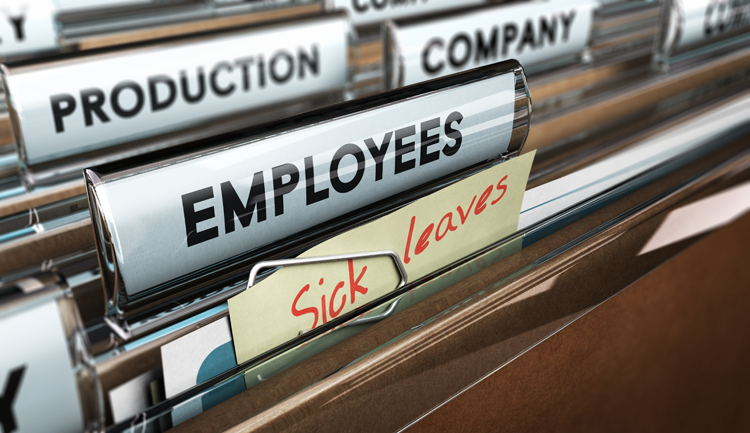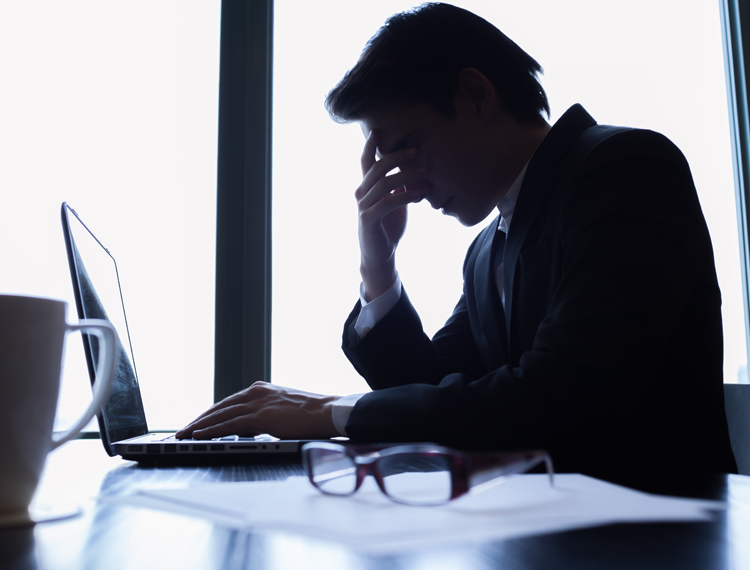Can companies be held liable when their employees fall ill with the coronavirus?

Images from Shutterstock.
In an effort to combat COVID-19, companies across the country have shuttered operations, required employees to work remotely and limited services and business hours.
As these companies—and the ones that haven’t been as quick to take action—face an uncertain financial future, they also face the possibility that their workers will contract the coronavirus and hold them accountable for not putting proper protections in place.
“That is something that is on everyone’s minds,” says Jennifer Scharf, a partner at The Coppola Firm in Amherst, New York who is advising employer clients on how to handle the coronavirus. “This COVID-19 is really unprecedented so it’s hard to give any hard and fast rules. We don’t have much of an equivalent to compare it to.
“My mantra everywhere I’ve ever been has been if we put the safety and health of people first and we work backward from there, we are going to come to the best answer.”
According to the Occupational Safety and Health Act’s general duty clause, employers are required to “furnish to each of his employees employment and a place of employment which are free from recognized hazards that are causing or are likely to cause death or serious physical harm to his employees.”
While the Occupational Safety and Health Administration has not released specific standards covering COVID-19, Michelle Strowhiro, a partner in the Los Angeles office of McDermott Will & Emery, contends that employers could face risks under this clause if they don’t take steps to protect their workplace and ensure it is not exposed to individuals who may have contracted the virus.
In addition, Strowhiro said that in certain health care settings and other workplaces where employees could encounter blood-borne pathogens, federal workplace safety law further requires the employer to “make an immediate confidential medical evaluation and follow-up available for employees that have had an exposure incident.”

Both Scharf and Strowhiro recommend that employers communicate best practices to employees, as well as reiterate existing workplace rules and outline any temporary rules related to health and safety amid the COVID-19 pandemic.
Scharf adds that employers can potentially mitigate general liability risks by following guidance from both the Occupational Safety and Health Administration and Centers for Disease Control and Prevention, as well as guidance from local counties and states.
The latest CDC guidance, announced by President Donald Trump on Monday, encourages people to work from home when possible and avoid social gatherings in groups of more than 10. It also asks people to avoid discretionary travel.
Several counties in California’s Bay Area, including San Francisco, also issued the nation’s tightest restrictions to contain the spread of the coronavirus on Monday, ordering residents to shelter in place until April 7.
If, however, companies need their workers to continue coming to work, Scharf says they can require additional medical information from employees and mandate that they stay home if they have a fever or other symptoms. Employers can use additional screening tools, including inquiring about travel to areas significantly impacted by the coronavirus, to identify employees who may be asymptomatic.
“And obviously, I would say it’s really advisable to restrict or eliminate any work-related travel to those areas if it’s not absolutely essential,” Scharf says.
She recommends that any employer that identifies an employee who has tested positive for the coronavirus notify the rest of the workforce about when and where that employee was working and who else may have been exposed. She says the employee should not be named and information about his or her illness should be kept in a private file.
When economically feasible, Scharf also suggests companies consider permitting employees who are sick to use paid time off and relaxing other leave policies to encourage them to remain at home. She says employers that take these measures may see an additional financial incentive in avoiding the possibility of workers’ compensation claims from employees who are exposed to the coronavirus through a co-worker.
Whether a company can be held liable if one of its employees infects others may depend on whether that employee can prove the virus was contracted at work, contends Daiquiri Steele, the Forrester Fellow at Tulane Law School.
“This will likely be difficult for employees because the employees bringing the claims would have to prove they contracted the virus on the job,” she says. “Because this is a pandemic, it would be difficult to ascertain where the virus was contracted.”
Steele expects that more discrimination, retaliation or whistleblower claims will result from the COVID-19 pandemic rather than Occupational Safety and Health Act or workers’ compensation claims, she says.
Ashley Prickett Cuttino, a shareholder in the Greenville, South Carolina office of Ogletree, Deakins, Nash, Smoak & Stewart, adds that companies may face wage and hour lawsuits if they are not paying employees correctly while they work remotely. They could also violate the Worker Adjustment and Retraining Notification Act if they are not following proper protocols with mass layoffs as a result of the coronavirus.
“One of the No. 1 questions we are getting from employers, especially from the hospitality industry and from the workforce that cannot be sent home, is as we are starting to see large-scale layoffs,” says Cuttino, a member of her firm’s coronavirus team. “It is all about unemployment and what is available for employees.”
Cuttino is paying close attention to the Families First Coronavirus Response Act, which was signed by Trump Wednesday. The emergency coronavirus relief package includes provisions that expand unemployment benefits, but she adds that most states also need to amend their current unemployment laws to make it easier for employees to access unemployment.
“We have seen 20 states make some changes to their unemployment laws,” she says. “We anticipate that the remaining will make changes.”
See also:
ABA Journal: “More than 50 law firms require or allow work from home because of COVID-19 concerns”
ABA Journal: “A slew of federal and state courts suspend trials or close for coronavirus threat”
ABA Journal: “The high demand for lawyers amid the coronavirus pandemic”
Write a letter to the editor, share a story tip or update, or report an error.


